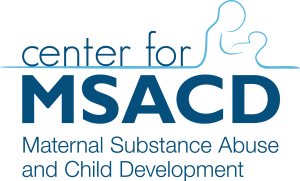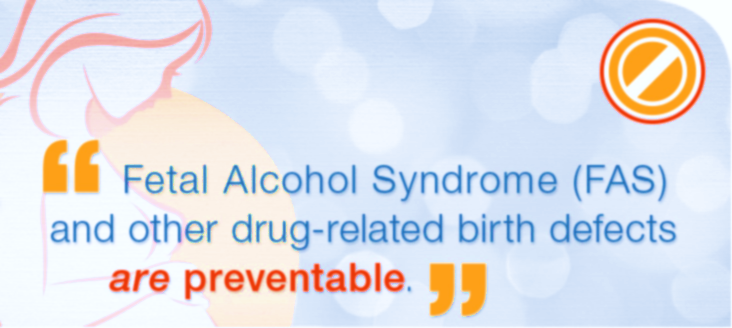Contributed by Wendy Jefferson, M.A.Ed., and Devon Michael LoParo, M.A.
 April is Alcohol Awareness Month, and Emory University’s Center for Maternal Substance Abuse and Child Development (MSACD) would like to encourage everyone to use the month of April to educate yourself and raise awareness about alcohol use and abuse, especially if you’re pregnant or planning on becoming pregnant.
April is Alcohol Awareness Month, and Emory University’s Center for Maternal Substance Abuse and Child Development (MSACD) would like to encourage everyone to use the month of April to educate yourself and raise awareness about alcohol use and abuse, especially if you’re pregnant or planning on becoming pregnant.
DID YOU KNOW? One in ten pregnant women in the United States ages 18 to 44 years reports drinking alcohol in the past 30 days of pregnancy, according to 2011-2013 results of the CDC Behavioral Risk Factor Surveillance System (BRFSS). About five percent of women aged 15 to 44 who sought treatment for substance abuse in 2010 were pregnant, according to information from the Substance Abuse and Mental Health Services Administration (SAMSHA). Further, according to a report in CDC’s Morbidity and Mortality Weekly Report (MMWR), a third of pregnant women report drinking four or more alcoholic beverages on at least one occasion during their pregnancy. This level of drinking is associated with increased risk for Fetal Alcohol Spectrum Disorders (FASDs).
“FASDs are a group of conditions that can occur in children and adults whose mother drank alcohol during pregnancy. FASDs are completely preventable if a woman does not drink alcohol during pregnancy.” Drinking alcohol during pregnancy can cause miscarriage, stillbirth and a range of lifelong disorders.
Children with FASDs tend to have unusual facial features, low birthweight and continued small size until puberty and damage to the nervous system. They also can have failure to thrive in infancy, feeding problems and delays in motor development.
Some behavioral and intellectual problems for children and adults with FASDs include:
- Learning disabilities,
- Hyperactivity,
- Difficulty paying attention,
- Speech and language delays,
- Poor memory, low IQ and poor reasoning and judgment skills.
 How you can help:
How you can help:
Inspire friends or family members to make small changes in their drinking habits by setting drinking limits or not drinking at all, especially if they are pregnant.
Share tips with friends or family members to help them talk with their kids about the consequences of excessive alcohol use.
Ask your doctors and nurses to talk to their patients about the benefits of drinking less or quitting, especially if pregnant.
If you or someone you know drank alcohol while pregnant and has a child exhibiting the physical, behavioral or intellectual issues referenced above, consider referring the child for an assessment of FASD so that they can receive the appropriate treatment at the Emory Neurodevelopmental Exposure Clinic (ENEC). Email fasclinic@emory.edu or call 404.712.9810 to refer a patient for treatment at ENEC.
There is no safe trimester to drink alcohol or use or abuse drugs!
Wendy is a Health Educator at the Emory University School of Medicine Center for Maternal Substance Abuse and Child Development (MSACD), and Devon is a Doctoral Candidate in Psychology at the Emory School of Medicine. Emory’s Center for MSACD Prevention Program serves as the state expert on Fetal Alcohol Spectrum Disorders (FASDs) and other drug related birth defects. The Center for MSACD is dedicated to the prevention of prenatal exposures and the negative consequences of maternal substance use and/or abuse by providing a range of prevention services to agencies, communities and families across the state of Georgia. For more information, visit www.emory.edu/msacd or call (404) 712-9800.
